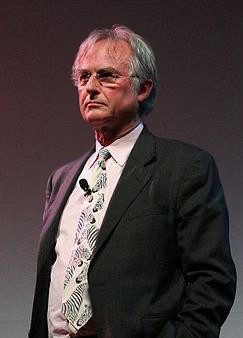
(Photograph by Shane Pope via Wikimedia Commons)
We flew this evening from Fort Lauderdale to Atlanta, and from Atlanta to Richmond, Virginia. It’s a matter of some satisfaction to me that there is now a temple in each of these cities — long dedicated and operating in Atlanta and Fort Lauderdale and, in Richmond, very near to completion and dedication.
While in the air, I began to read a book by one Terry Higham, “a research-minded Catholic layman” who is based in the United Kingdom, titled The God Debate: Dawkins in Denial: Christian Guide Through an Atheist Wilderness. I wasn’t expecting much — I knew nothing about either the book or its author, although I had, it seems, loaded it onto my iPad at some indeterminate point in the past — but I’ve rather liked it thus far. Higham is obviously bright and quite well read. And, candidly, I enjoy critiques of Richard Dawkins, who doesn’t present quite the hilarious target that the late Christopher Hitchens did, but who nevertheless positively demands contradiction.
Higham quotes a famously biting comment on Dawkins from Terry Eagleton, the English Marxist literary theorist, critic, and public intellectual, currently affiliated with the University of Lancaster after long teaching stints at Oxford University and Manchester University:
Imagine someone holding forth on biology whose only knowledge of the subject is the Book of British Birds, and you have a rough idea of what it feels like to read Richard Dawkins on theology. Card-carrying rationalists like Dawkins, who is the nearest thing to a professional atheist we have had since Bertrand Russell, are in one sense the least well-equipped to understand what they castigate, since they don’t believe there is anything there to be understood, or at least anything worth understanding. This is why they invariably come up with vulgar caricatures of religious faith that would make a first-year theology student wince. The more they detest religion, the more ill-informed their criticisms of it tend to be. If they were asked to pass judgment on phenomenology or the geopolitics of South Asia, they would no doubt bone up on the question as assiduously as they could. When it comes to theology, however, any shoddy old travesty will pass muster. . . . critics of the richest, most enduring form of popular culture in human history have a moral obligation to confront that case at its most persuasive, rather than grabbing themselves a victory on the cheap by savaging it as so much garbage and gobbledygook.
Re-reading Eagleton’s comment, I can’t help but think of this blog’s most prolific resident atheist. And Higham agrees with Eagleton’s view of Dawkins:
Higham also cites (and criticizes) a very forthright statement that I myself have quoted multiple times here, from a vocal advocate of the naturalistic worldview. In his 1994 book The Astonishing Hypothesis: The Scientific Search for the Soul, Sir Francis Crick (1916-2004), co-discoverer with James Watson of the double helix structure of DNA, declared his thorough-going naturalism and reductionism very clearly:
A person’s mental activities are entirely due to the behavior of nerve cells, glial cells, and the atoms, ions, and molecules that make them up and influence them.
The Astonishing Hypothesis is that ‘You,’ your joys and your sorrows, your memories and your ambitions, your sense of identity and free will, are in fact no more than the behaviour of a vast assembly of nerve cells and their associated molecules. As Lewis Carroll’s Alice might have phrased it: ‘You’re nothing but a pack of neurons.’
Back to Higham:
I close with another quotation that seemed an uncannily apt description of the approach cultivated here by this blog’s resident atheist:
Posted from Richmond, Virginia












